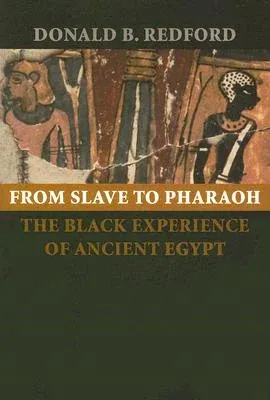In From Slave to Pharaoh, noted Egyptologist Donald B. Redford
examines over two millennia of complex social and cultural interactions
between Egypt and the Nubian and Sudanese civilizations that lay to the
south of Egypt. These interactions resulted in the expulsion of the
black Kushite pharaohs of the Twenty-fifth Dynasty in 671 B.C. by an
invading Assyrian army.
Redford traces the development of Egyptian perceptions of race as their
dominance over the darker-skinned peoples of Nubia and the Sudan grew,
exploring the cultural construction of spatial and spiritual boundaries
between Egypt and other African peoples. Redford focuses on the role of
racial identity in the formulation of imperial power in Egypt and the
legitimization of its sphere of influence, and he highlights the
dichotomy between the Egyptians' treatment of the black Africans it
deemed enemies and of those living within Egyptian society. He also
describes the range of responses--from resistance to assimilation--of
subjugated Nubians and Sudanese to their loss of self-determination.
Indeed, by the time of the Twenty-fifth Dynasty, the culture of the
Kushite kings who conquered Egypt in the late eighth century B.C. was
thoroughly Egyptian itself.
Moving beyond recent debates between Afrocentrists and their critics
over the racial characteristics of Egyptian civilization, From Slave to
Pharaoh reveals the true complexity of race, identity, and power in
Egypt as documented through surviving texts and artifacts, while at the
same time providing a compelling account of war, conquest, and culture
in the ancient world.

